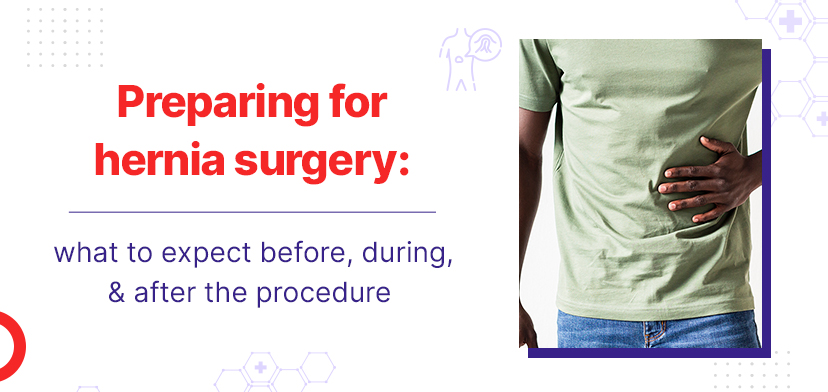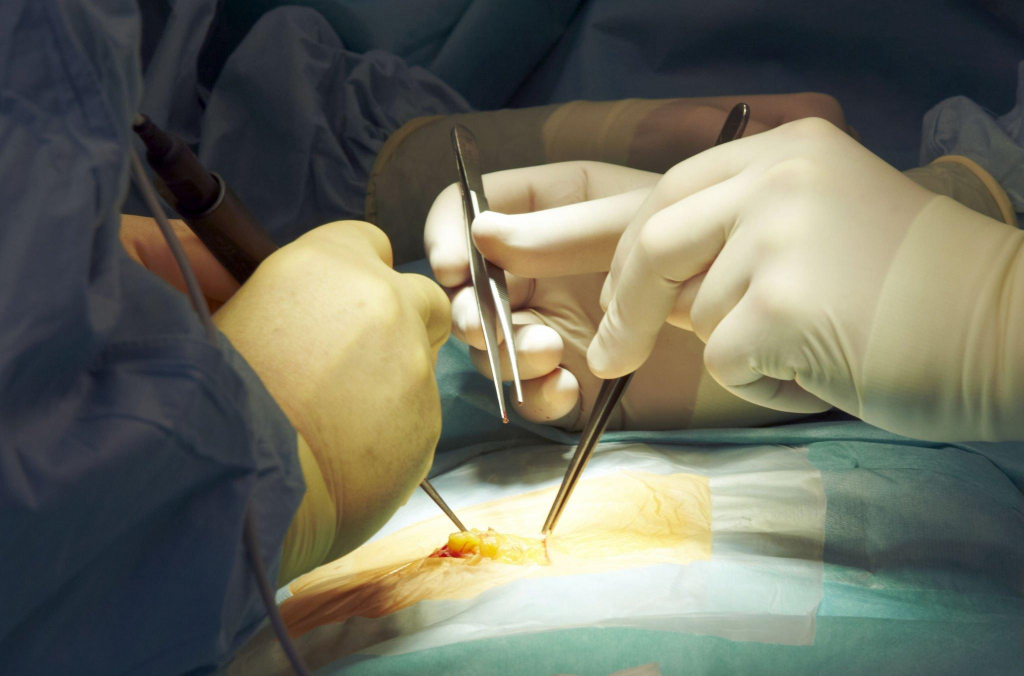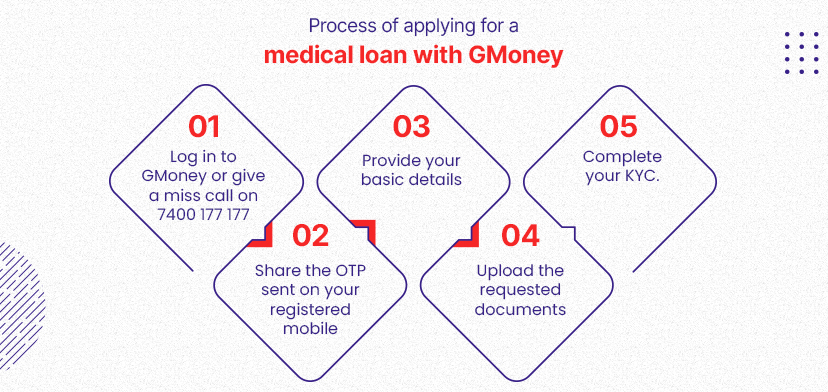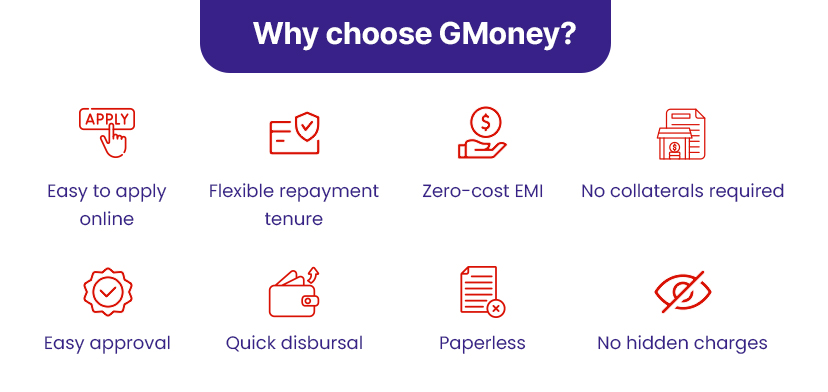Home » Preparing For Hernia Surgery: What To Expect Before, During, And After The Procedure

Are you scheduled for surgery to fix a hernia? Here is a guide to what you can expect before, during, and after surgery.
Preparing for hernia surgery is critical to ensuring the procedure’s success, comfort, and safety. It is vital to consult with your doctor about types of hernia surgery, possible operation issues, risks, treatments, aftercare, and any other preparations for the surgery.
Your doctor can advise you about what to expect before, during, and after the surgery. They will also be able to give you any essential instructions or advice to help you get the most out of your surgery and recovery. Proper planning can help reduce potential hazards and ensure that the surgery goes as well as possible.

What is a Hernia?
A hernia is a protrusion of an organ or tissue through a weak point in the muscle or connective tissue that holds it in place. This can happen in the abdominal wall, causing the intestine or other abdominal organs to protrude. Hernias are most usually discovered in the groin (inguinal), belly button (umbilical), or at the site of a previous surgical incision (incisional).
What are the Different Types of Hernia Surgery?
There are several types of hernia surgery, including
The type of surgery suggested will depend on the type and location of the hernia, as well as the patient’s overall health and personal preferences.
According to Dr Gunjan Dodwani surgery is the only cure for hernia and is completely curable.
The two most prevalent hernia repair treatments are open surgery and laparoscopic surgery. Usually, an incision is made to get to the hernia, which is then fixed with sutures or surgical mesh, and the wound is then closed.
Laparoscopic surgery is a less invasive way to fix hernias. It involves making a series of small cuts in the abdomen. In both cases, the hernia is either pushed back into the body or fixed with surgery.
It is important to discuss the risks and advantages of both forms of surgery with your doctor since the best option will depend on the type and size of the hernia. Recovery timeframes may vary based on the kind of hernia and the type of surgery done.
You can better understand this from Mahesh’s experience.
Mahesh had both an open and a robotic hernia repair. He found that the spot where the mesh patch was sewn in was very painful regardless of the type of surgery. The first few days after the open surgery were very rough and it took him a week to be able to walk somewhat normally and comfortably. After the robotic surgery, he was able to walk more bearable.
When it comes to lifting, hernia repairs usually come with strict restrictions. Mahesh was told to not lift anything over 10 lbs. for six weeks after the open surgery. For the robotic surgery, he was told four weeks. His recovery did get delayed due to a pulled muscle and his surgeon okayed him to lift toddlers after three weeks.

Pre-Surgery Appointment
You will have a pre-surgical appointment with your surgeon before your hernia surgery. Your surgeon will evaluate your medical history and perform a physical examination during this session. They will also describe the surgical procedure, the risks and benefits, and answer any concerns you may have.
Pre-Surgery Tests
Before the surgery, your surgeon will also order various tests, such as an ultrasound, blood test, urine test, chest x-ray, MRI, and ECG. These tests will assist your surgeon in determining your overall health and if you are a good candidate for surgery.
Pre-Surgery Diet
Your surgeon may advise you to follow a specific diet before surgery to promote recovery and limit the chance of problems. You may be told to avoid particular foods and beverages or to limit your intake of specific nutrients. Your surgeon will provide you with precise dietary instructions.
Types of Anesthesia
Different types of anaesthesia can be used during hernia surgery. The type of anaesthetic utilised will be determined by the procedure, the patient’s overall health, and any special medical issues.

Once the anaesthesia has taken effect, the surgeon will make the necessary incisions and repair the hernia. The procedure may include reinforcing the area with sutures or mesh material. After the hernia is repaired, the incisions will be closed with sutures or staples. The surgery typically takes two to three hours, depending on the type of procedure.
Following surgery, the patient will be transported to the recovery room and closely watched. To alleviate discomfort, the patient may be given painkillers. They will be discharged to go home once they have recovered enough.
Recovery at Home
Recovery time will vary depending on the type of surgery performed and your overall health. You should take it easy for a few days and avoid heavy lifting or strenuous activity.
Follow-up Care
Your surgeon will schedule a follow-up appointment to assess your progress and answer any concerns you may have. Additional tests or imaging may be required to guarantee appropriate healing. Your surgeon will also provide specific instructions for care for the surgical site and other recuperation recommendations.
Risks and Complications
As with any surgery, hernia surgery carries certain risks and potential complications. These may include
Your surgeon will discuss the risks and potential complications of the surgery with you before the procedure.
According to doctors, a hernia that’s left untreated can lead to complications like strangulation, where the tissue gets stuck and loses blood flow. That can mean bad pain, nausea, and vomiting, and can even be fatal if not treated immediately. It can also lead to chronic pain, hernias coming back, and even bowel obstruction. That’s why hernia surgery should not be delayed.
Furthermore, when surgery is delayed, the chances of infection go up. The tissue may become infected if the hernia grows too large, which can cause complications like sepsis, which is very dangerous.
Plus, postponing surgery can also mean needing more intensive repairs. When a hernia is not treated for long, the tissue can become weak and harmed. This makes it harder for the surgeon to fix the hernia and may need more in-depth procedures.
Hernia surgery has a high success rate and is usually safe, so it’s important to get it done if your doctor recommends it. This will help stop any serious issues and make sure you recover well.
If you are considering hernia surgery, you must understand the expenses and benefits. The hernia surgery cost may be expensive, and several potential postoperative complications can be costly to treat.
The cost of hernia surgery in India ranges from ₹35,000 to ₹200,000, depending on the type of surgery, the surgeon’s experience, and the hospital where the procedure is performed. It is critical to discuss the cost of the procedure with your surgeon and understand what is included.
The following table will provide you with hernia surgery costs in various cities in India.

GMoney provides a medical emergency loan for hernia surgery, allowing individuals to pay for their surgery in instalments. The loan is interest-free and has a quick approval process. The GMoney’s no-cost EMI loan for hernia surgery makes it easier for individuals to afford the surgery without accumulating significant debt.
GMoney also offers its consumers helpful resources and advice on the surgery and recovery process. This guarantees that individuals have a great experience and may concentrate on the healing process without worrying about money.

1. What are the signs and symptoms of a hernia?
A bulge or lump in the affected area, pain or discomfort while lifting or straining, and a sense of weight or heaviness in the affected area are all common signs of a hernia.
2. What is the cause of a hernia?
Hernias are typically caused by increased pressure in the abdomen or groin, which can be caused by bowel straining, heavy lifting, pregnancy, or obesity.
3. How is a hernia diagnosed?
A hernia is often diagnosed via physical examination and imaging testing such as an ultrasound or CT scan.
4. What are the risks of a hernia?
The risks of having a hernia include pain and discomfort, infection, and intestine obstruction. In rare cases, hernias can cause life-threatening complications such as strangulation or incarceration of the intestine.
5. How long does it take to recover from hernia surgery?
The amount of time it takes to recover from hernia surgery depends on the type of hernia and the patient’s overall condition. Hernia surgery might take anywhere from 2-4 weeks to fully recover.
6. Am I qualified for GMoney’s no-cost EMI?
Any individual who is a resident of India and is between the ages of 21 and 58 is eligible for GMoney’s no-cost EMI.
7. Are there any processing fees for GMoney’s no-cost EMI?
No, GMoney does not charge processing fees. You can apply for the loan online with no charges or penalties.
8. How long does Gmoney’s no-cost EMI last?
GMoney has a flexible payment schedule. You can choose a loan length ranging from 3 to 18 months based on your ability to pay.
9. Can children have hernias?
It’s not at all rare. Umbilical hernias at birth are, in fact, quite common. Most will go away on their own. Inguinal hernias in newborns and infants are frequently seen. Those don’t go away. Happily, the repair of an infant hernia is quite simple compared to those in adults.
10. What is minimally invasive hernia repair?
Laparoscopic, or minimally invasive, procedures use multiple small incisions no more than 1 centimetre in length to access the hernia. The abdomen is then inflated with carbon dioxide to provide room for the surgeon to work, and the hernia is repaired with a small, flexible device called a laparoscope.
11. Can hernias cause death?
Yes, in some cases. A strangulated hernia can occur when the bowel becomes trapped in the hernia, cutting off the blood supply to the affected tissue. If the trapped tissue dies and intestinal contents leak into the abdominal cavity, resulting in peritonitis, it can be fatal unless it is treated quickly with surgery and antibiotics.

Hernia surgery is a serious procedure that can save a person’s life. Before the treatment, it is critical to discuss the risks and complications of the surgery with your physician and to understand what is included in the overall cost. With the help of a medical loan from GMoney, you can afford the surgery and focus on your recovery.
Disclaimer: THIS WEBSITE DOES NOT PROVIDE MEDICAL ADVICE.
Follow us
Reach us
Mumbai HO
GMoney Pvt. Ltd.
315, 215 Atrium,
Next to Courtyard by Marriott,,
A.K. Road, Andheri East,
Mumbai - 400093
Ph : +91 86570 00105, +91 72089 60444
Quick Links
Bengaluru
GMoney Technologies Pvt. Ltd.
Oyo Work Spaces, Umiya Emporium,
Opposite Forum Mall, Hosur Rd,
Koramangala, Bengaluru,
Karnataka 560029
Ph : +91 89717 34815
Delhi
GMoney Technologies Pvt. Ltd.
Berry Co Works, 1E/3,
Jhandewalan extension,
Next to jhandewalan metro station
gate no. 2 Barakhambha Road,
New Delhi, Delhi 110001
Ph : +91 97116 26832
Pune
GMoney Technologies Pvt. Ltd.
91 Spring Board, Sky Loft,
Creaticity Mall, Off, Airport Rd,
opposite Golf Course, Shastrinagar,
Yerawada, Pune,
Maharashtra 411006
Ph : +91 84250 28758
Chandigarh
GMoney Technologies Pvt. Ltd.
SCO no. 292,
First Floor, Sector 35D,
Chandigarh
Ph : +91 84279 82012
Jaipur
GMoney Pvt. Ltd.
CODESKK Civil Tower,121 122,
Pandit TN Mishra Marg,
Santhosh Nagar, Nirman Nagar,
Jaipur – 302019
Ahmedabad
GMoney Pvt. Ltd.
22nd Floor, B Block,
Westgate By True Value,
Nr. YMCA Club, SG Highway,
Ahmedabad – 380051
Hyderabad
GMoney Pvt. Ltd.
Dwaraka Pride,
Plot no. 4/1, Survey No. 64,
Huda Techno Enclave, Madhapur,
Hyderabad (Telangana) – 500081
Chennai
GMoney Pvt. Ltd.
DBS Business Center, 31A,
Cathedral Garden Rd, Badrikari, Tirumurthy Nagar, Nungambakkam, Chennai, Tamil
Nadu – 600 034
Mumbai HO
GMoney Pvt. Ltd.
315, 215 Atrium,
Next to Courtyard by Marriott,,
A.K. Road, Andheri East,
Mumbai - 400093
Ph : +91 86570 00105, +91 72089 60444
Bengaluru
GMoney Pvt. Ltd.
3rd floor, Ranka Junction,
AH45, Krishna Reddy Industrial Estate,
Dooravani Nagar,
Bengaluru Karnataka - 560016
Ph : +91 72089 60444
Pune
GMoney Pvt. Ltd.
91 Spring Board, Sky Loft,
Creaticity Mall, Airport Rd,
Opp. Golf Course, Shastrinagar,
Yerawada, Pune,
Maharashtra - 411006
Ph : +91 72089 60444
Delhi
GMoney Pvt. Ltd.
Berry Co Works, 1E/3,
Jhandewalan extension,
Gate no. 2 Barakhambha Road,
New Delhi, Delhi - 110001
Ph :
+91 72089 60444
Chandigarh
GMoney Pvt. Ltd.
SCO No. 292,
First Floor, Sector 35D,
Chandigarh - 160022
Ph : +91 72089 60444
Hyderabad
GMoney Pvt. Ltd.
Dwaraka Pride,
Plot no. 4/1, Survey No. 64,
Huda Techno Enclave, Madhapur,
Hyderabad (Telangana) - 500081
Jaipur
GMoney Pvt. Ltd.
CODESKK Civil Tower,121 122,
Pandit TN Mishra Marg,
Santhosh Nagar, Nirman Nagar,
Jaipur - 302019
Chennai
GMoney Pvt. Ltd.
DBS Business Center, 31A,
Cathedral Garden Rd, Badrikari,
Tirumurthy Nagar,Nungambakkam, Chennai,
Tamil
Nadu - 600 034
Pune | Mumbai | New Delhi | Kolkata | Chennai | Navi Mumbai| Bengaluru | Ahmedabad | Nagpur | Hyderabad | Jaipur | Lucknow | Bhopal | Bhubaneswar | Nashik | Indore | Ghaziabad | Kanpur | Amritsar | Vasai | Noida | Gurugram | Chandigarh | Ranchi | Cuttack | Thane | Kalyan | Jalandhar | Kolhapur | Visakhapatnam | Chakan| Greater Noida | Wagholi | Raipur | Panvel | Belgaum | Mohali | Bhiwandi | Talegaon | Coimbatore | Palghar | Mumbra | Sangli | Surat | Durgapur | Ludhiana | Kochi | Agra | Ahmednagar | Ajmer | Akola | Aurangabad | Baroda | Beed | Rewari | Patiala | Vellore | Ranjangaon | Nanded | Nellore | Panipat | Panjim | Madurai | Mysore | Mangalore | Korba | Mathura | Kalaburagi | Jalgaon | Kharar | Guwahati | Kollam | Jamshedpur | Gwalior | Saswad | Solapur | Varanasi | Salem | Sambalpur | Jodhpur | Hubli | Panchkula | Faridabad | Amravati | Ayodhya | Badlapur | Dehradun | Parbhani | Ujjain | Udaipur | Tiruchirappalli | Srinagar | Shimla | Secunderabad | Ratnagiri | Pandharpur | Ananthapuram | Buldhana | Hadapsar | Baramati | Chittoor | Darjeeling | Dhule | Fatehpur | Gandhinagar | Haridwar | Gorakhpur | Jhansi | Kanchipuram | Kartarpur | Kurukshetra | Pondicherry | Prayagraj | Bharuch | Bhusawal | Bathinda | Pathankot | Nandurbar | Niphad | Kolar | Ambala | Kota | Pendurthi | Jabalpur | Palwal | Bhilai | Bhiwani | Bilaspur | Patna | Rohtak | Phagwara | Malegaon | Vijayawada | Bikaner | Chiplun | Darbhanga | Roorkee | Bhor | Rajahmundry | Margao | Alwar | Dhanbad | Bulandshahr | Aluva | Mulshi | Davanagere | Kapurthala | Anantapur | Loni | Latur | Gondia | Chhindwara | Chandrapur | Dharmapuri-TN | Faridkot | Dharwad | Daund | Chaksu | Bareilly | Kakinada | Haldwani | Doddaballapur | Dindori-MH | Bagru | Kudus | Kozhikode | Gurdaspur | Bokaro | Berhampur | Batala | Barrackpore | Ramgarh | Meerut | Bassi | Dera Bassi | Howrah | Karjat Raigarh | Thiruvananthapuram | Bheemunipatnam | Ambegoan | Allahabad | Aligarh | Alappuzha | Tirupathi | Thoppumpady | Srikakulam | Siliguri | Rourkela | Mirzapur | Gadag | Bellary | Tumkur | Sonipat | Hoshangabad | Junnar | Jalna | Hisar | Karnal | Kottayam | Muzzafarnagar | Ramnagara | Thrissur | Bahadurgarh | Balasore | Baraut | Dhar | Ernakulam | Gadhinglaj | Chikodi | Vaniyambadi | Kamothe |